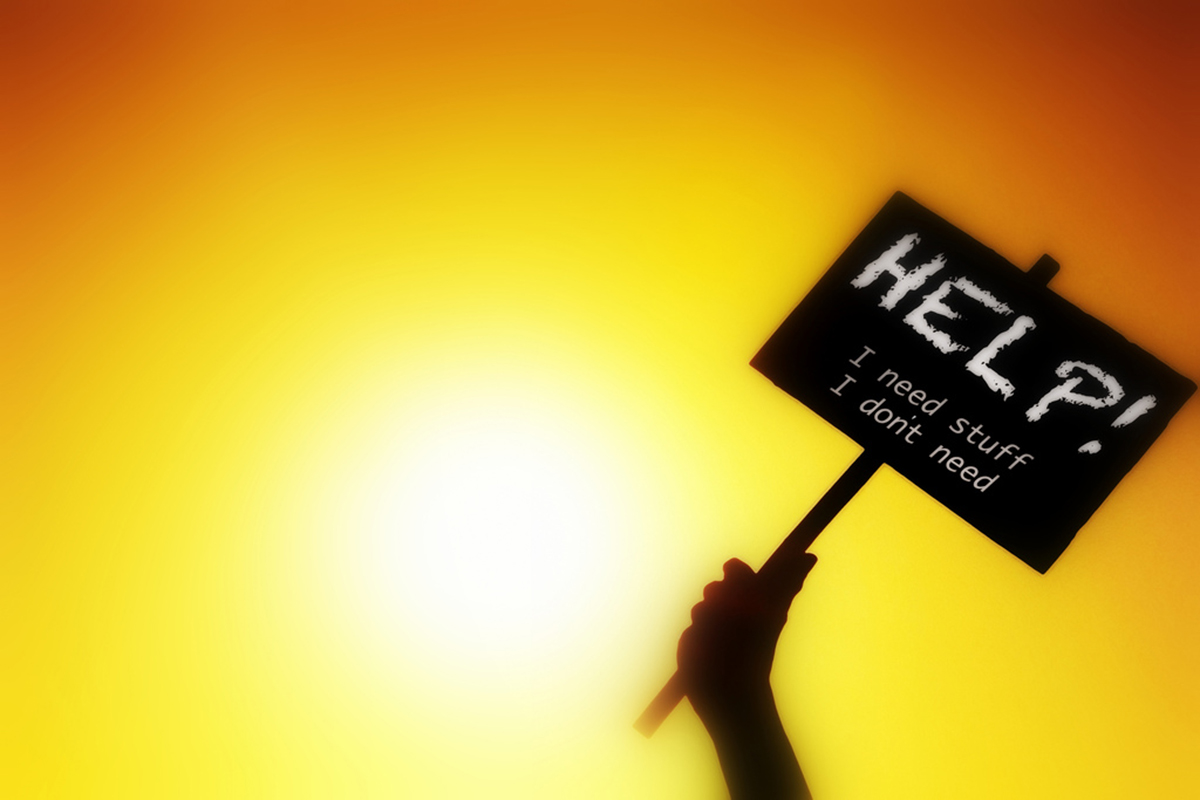Did you ever play hooky? Have a fling? Go shopping like you had just gotten a divorce from a lottery winner? While actions have consequences, many psychologists regard occasional impulsive behavior as a sign of emotional health, a healthy defiance of routine. And when opportunities are fleeting, sometimes a quick response yields highly desirable results.

On the other hand, blowing up every time someone says something you don't like, or being absent from work more often than you show up, or seeking a new sex partner every night, or several times every night, suggests an unhealthy lack of impulse control. Mental health professionals believe that the advent of widespread use of the Internet, iPhones, and electronic communications aggravates impulse control disorders in people who might otherwise easily be able to control them.
The Flip Side Of Impulse Control Disorders
At the opposite end of the psychological spectrum, some people demonstrate the opposite of impulse control disorders, obsessive-compulsive disorders, also known as OCD. In the 1997 film "As Good As It Gets," actor Jack Nicholson portrayed fictional character Melvin Udall, who locked doors and flipped light switches exactly five times, avoided stepping on cracks, and washed his hands repeatedly, each time throwing out the bar of soap he had just used. Several scenes in the movie take place at a diner, where Nicholson's character sits at the same table every day, eating with utensils wrapped in plastic and brought from home.
Research scientists believe that impulse control disorders, also known as ICDs, and obsessive-compulsive disorders, also known as OCD, share a common disease process in the brain. Successfully treating one set of mental health issues may yield successful treatments for the other.
What Goes Wrong In ICD And OCD?
Human brains are designed to respond to a group of feel-good chemicals known as the endorphins. The endorphins block the sensation of pain, and they also produce a sense of euphoria.
In impulse control disorders, the brain produces certain kinds of endorphins too readily. An impulsive action produces a quick hit of endorphins that results in feeling good right away. What kinds of impulsive action result in fast and excessive endorphin production?
- Stealing items on impulse (kleptomania).
- Setting fires (pyromania).
- Losing one's temper (intermittent explosive disorder), and
- Pulling out hair (trichotillomania).
Psychiatric associations have also suggested that bizarre patterns of Internet use, shopping addictions, compulsive picking at one's skin or toes, and compulsive picking at the skin may also be impulse control disorders. Even when there are clear negative consequences of the activity and the person is aware of them, the release of endorphins triggered by the activity is just too much to resists.
See Also: Is Obsessive Compulsive Disorder A Risk Factor For Schizophrenia?
At the other end of the spectrum, some people do the same thing over and over again as if their brains were hoping for a reward. People who perform compulsive acts like the movie character Mel Udall, mentioned above, have brains that don't make enough endorphins, although they usually have normal levels of stress hormones.
What You Can Do About ICDs and OCDs
Both impulse control disorders and obsessive-compulsive disorders are extremely complex and require professional medical (psychiatric) treatment. That doesn't mean that there's nothing that you can do to make dealing with these life-altering conditions easier. In fact, there are many things that individuals and people who live with and care for them can do to make managing these psychiatric conditions easier.

- While there are no nutritional supplements that cure either impulse control disorders or obsessive-compulsive disorders, the antioxidant supplement N-acetylcysteine (NAC) can make managing impulse control disorders easier. Part of the "buzz" in the brain that occurs after an impulsive act is generated by the release of a chemical called glutamate, which travels between neurons. Taking N-acetylcysteine increases the overall amount of glutamate in the brain, and makes it less likely that neurons will release glutamate, so there is less of a brain change after an impulsive behavior. Both cocaine addiction and pathological gambling have been found, in some studies, to be more easily manageable in people who take N-acetylcysteine. Several studies have found that N-acetylcysteine is also helpful in managing obsessive-compulsive disorder.
- Certain foods can make dealing with binge eating, binge drinking, impulsive gambling, and cocaine addiction more difficult. In these problem behaviors, the brain's dopamine receptors tend to be "burned out" or unavailable. Foods that contain dopamine tie up even more receptors so that there is more a compulsion to eat, drink, gamble, or snort cocaine to feel good again. High-dopamine foods include most beans, almonds, blueberries, and spirulina. Avoiding these foods isn't a cure for impulse control disorders, but it can sometimes help. Conversely, eating more of these foods may help in obsessive-compulsive disorders.
- Stressful life events usually activate the hypothalamus-pituitary-adrenal (HPA) axis. When this happens in individuals who have impulse control disorders, chemical changes in the brain make it quicker to release the pleasure chemical dopamine. The more stress someone who has an impulse control disorder undergoes, the more relief they get from their problem behavior, such as gambling, compulsive eating, compulsive sex, shopping, talking, lying, mutilating their skin, picking at their skin, or pulling their hair. Stress increases obsessive-compulsive disorders through a different hormonal mechanism, but both kinds of psychological problems are worse during stress. Avoiding stress makes managing these problems easier.
Not everyone who has an impulse control disorder or an obsessive-compulsive disorder responds to stress, life situations, medications, food, and nutrients the same way. What seems to be a miraculous cure for one person may not work at all for someone else, and life histories determine how people will respond to "temptation".
See Also: Understanding Depression: When Feeling Sad Is A Sign Of Mental Illness
However, what is sure about all of the disorders on the impulsive-compulsive spectrum is that more that personal character and personal decision making is at work. People who lead unsheltered lives in the "real world" sometimes have genetic predispositions that make it very difficult for them to act in ways that make their lives better. Blaming them for their genetics doesn't help. Assisting them in finding professional treatment and in avoiding actions with especially serious consequences does.
- Brewer, J. A., & Potenza, M. N. (2008). The Neurobiology and Genetics of Impulse Control Disorders: Relationships to Drug Addictions. Biochemical Pharmacology, 75(1). 63–75. doi:10.1016/j.bcp.2007.06.043.
- Photo courtesy of Keoni Cabral by Flickr: www.flickr.com/photos/keoni101/5267271037
- Photo courtesy of Pheezy by Flickr: www.flickr.com/photos/pheezy/4788171444

